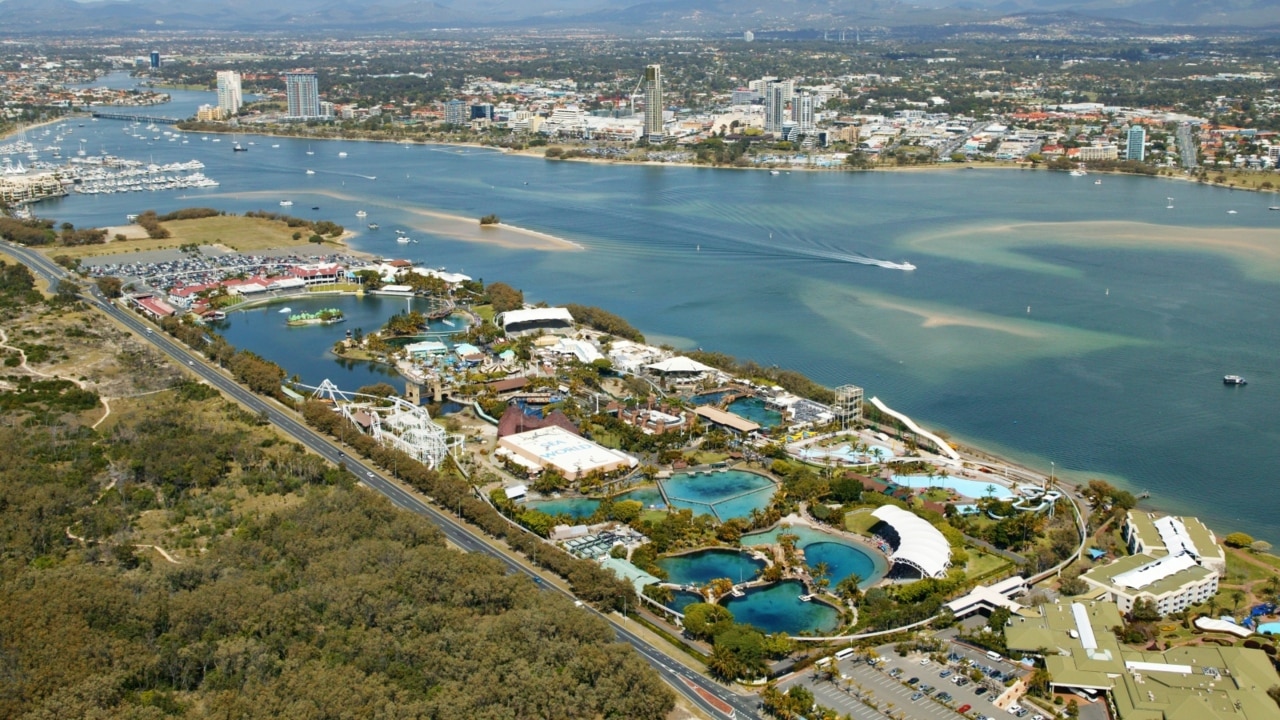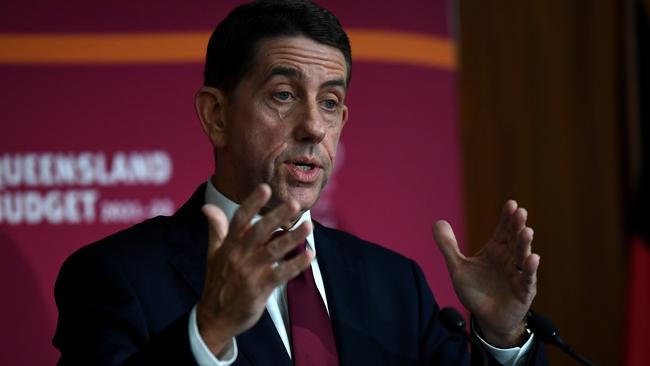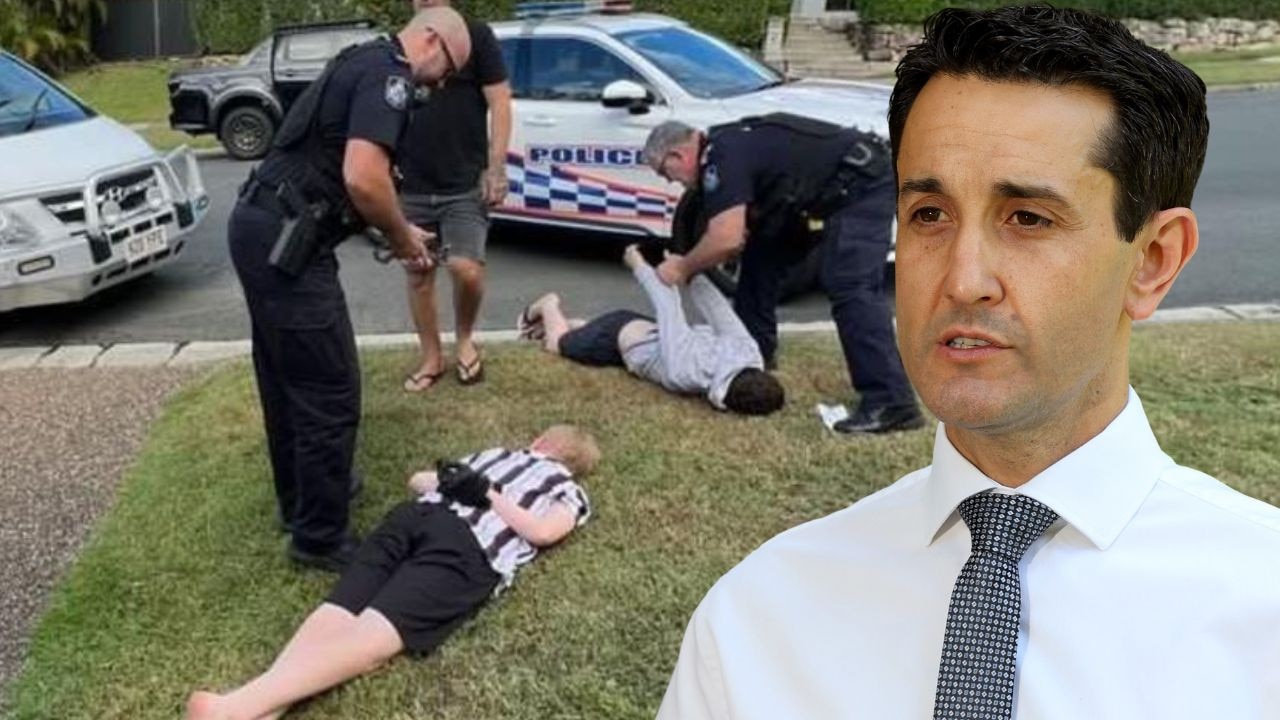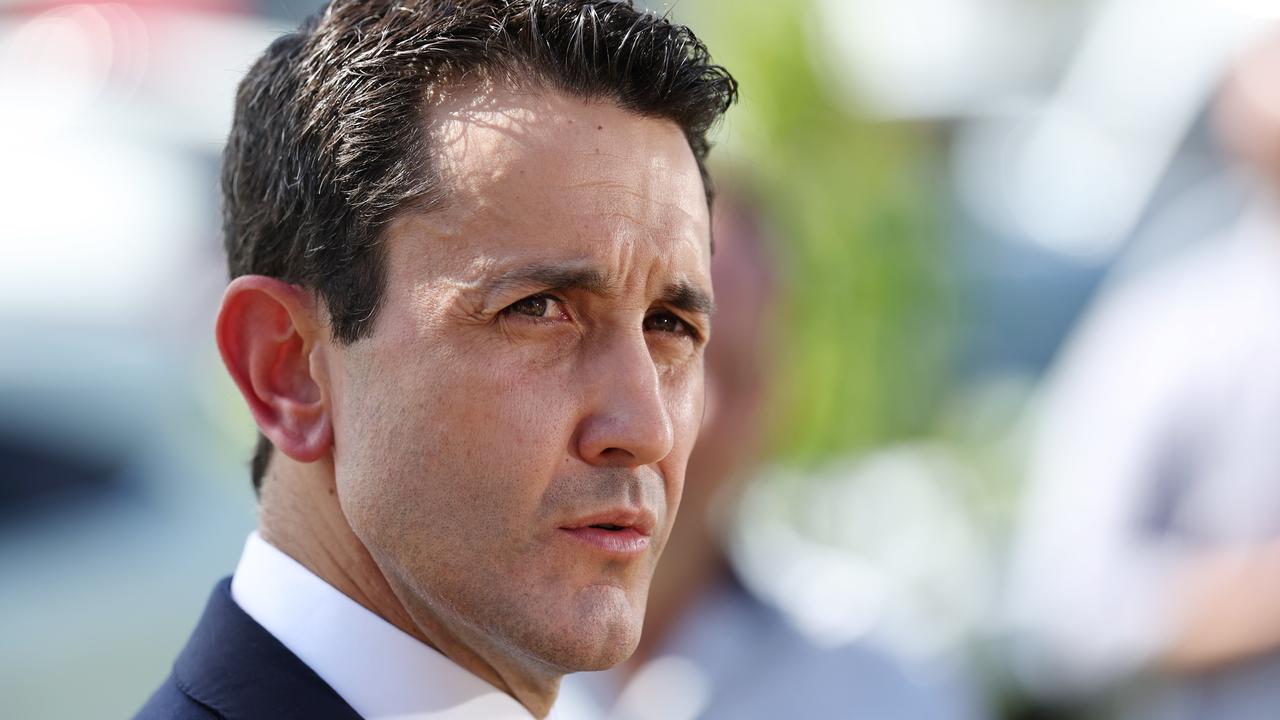Queensland Budget 2021: Public service hiring freeze, $12bn recovery help return to surplus
Treasurer Cameron Dick has announced Queensland’s Budget is on track to return to a surprise razor-thin surplus, thanks to a range of factors, including a public service hiring freeze.

QLD Politics
Don't miss out on the headlines from QLD Politics. Followed categories will be added to My News.
Queensland is plotting a return to surplus in four years, thanks to a $12 billion recovery to finances, the continuation of a public service hiring freeze and predictions the state will reach full employment by 2025.
Treasurer Cameron Dick has announced a surprise razor-thin $153 million surplus for 2024-25, trumpeting that Queensland would beat the powerhouse Australian, Victorian and NSW economies in crossing back into the black following the global pandemic.
The 2021-22 deficit is now just $3.8 billion - down from the $8.6 billion predicted in December - and total debt will now be lower than the $130 billion projected for 2023-24. It will now instead hit $127 billion in 2024-25.

Releasing his second budget today just six months after delivering his first, Mr Dick said deficits were narrowing “because jobs are coming back”, as he celebrated the creation of 54,900 jobs since March last year, and predicted another 200,000 would be created over the next four.
He said the sunshine state was now the “sunrise state”.
“The four largest governments in Australia - the Commonwealth Government, the NSW Government, the Victorian Government, and the Queensland Government - all went into deficit to respond to covid-19,” Mr Dick said.
“Today, only one of those four governments is returning to surplus - the Palaszczuk Labor Government.”
“ … Queensland was the first to return all of the jobs lost due to covid-19 and now Queensland is the first of these jurisdictions to return to surplus.”
The economy will grow by 3.25 per cent this financial year - more than double the national growth rate - and unemployment is now predicted to hit a low of 5 per cent by 2025, which is a level not seen since April 2009.
Meanwhile, the state’s Titles Registry has been valued at nearly $8 billion – almost double what it was valued at a year ago - and will be largely transferred to Queensland’s Future Fund to help offset debt via the Debt Retirement Fund.
Despite a debt to revenue ratio of 121 per cent in 2024-25, Mr Dick said he wasn’t overly worried about a downgrade by ratings agencies.
As $3 billion in savings across the public service remained on track, the Treasurer announced he was extending a one-year public service hiring freeze for at least another year.
He said he was content with the growth of the public service following previous criticism that it was growing too fast, and that the government would continue to focus on hiring frontline staff only.
Increased payroll tax, transfer duty and boosted GST payments have improved revenues by $11.8 billion over four years as domestic spending picks up, in part because Queenslanders can’t holiday overseas, but royalties have tanked.
Budget papers say overseas exports in goods and services are now expected to decline by 15.75 per cent in 2020-21, driven by a whack to coal exports thanks to China’s import ban on Australia.
Where in 2019-20 China imported 20Mt of hard coking coal and 8.6Mt of thermal coal, it imported just 2.5Mt and 330,000 tonnes respectively from October to April this year.
Coal royalties will deliver just $1.75 billion in 2020-21, compared with $4.3 billion two years ago before the pandemic and China’s ban hit.
The budget relies on several key assumptions, including that there will be no prolonged or widespread lockdowns or severe social distancing necessary, that the interstate border will remain mostly open and that the international border will remain closed to most travellers through to mid-2022.
Meanwhile $2 billion will be borrowed for a new hospital building fund aimed at easing pressure on the state’s struggling health system.
But beyond a day surgery in Toowoomba, the already-announced Mater Public Hospital in Springfield and $120 million for capital works, it’s not yet known where the rest will be allocated.
And $1.9 billion will be spent on 6365 new homes in four years under a social housing boost, with Mr Dick saying he was “very confident this is one of the single biggest investments any government’s made to housing” and that it would be “a huge step forward” towards addressing the substantial waitlist.


